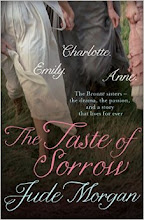H is also for Hype, and if there's one thing that precedes this book, that's it. Is there any way it could live up to said hype? Well...actually, yes. It really is beautiful. I'm not sure what more I can add to the plethora of glowing reviews this account of a falconer grieving for her recently lost father whilst training a young goshawk has already garnered, but perhaps, by some slender chance, it has escaped your eagle (see what I did there?) eye, and you need a wee introduction.
Firstly, may I applaud Vintage for their outstanding cover design? And in a footnote, add how delighted I am that they have retained the same design for the paperback as the hardback. It is as clean, crisp and un-girly as the prose within.*
Secondly, the narrative itself: Helen Macdonald's father dies, and her grief becomes so caught up in the training of Mabel, her goshawk, that she can no longer distinguish the emotions that relate to one, from those that relate to the other. And all of those emotions are fierce. Macdonald's hunger for almost total reclusivity, for escape into an unknown wildness, mirrors that of Mabel as she learns to hunt. And it is this theme that binds the story together, as Macdonald hides herself inside the bird, soaring with her away from the real life that she will one day need to come back down to earth and face again.
H is for Hawk deals in death, and as such, needs writing weighty enough, earthy enough, poetic enough to realise its harrowing theme. And this is where the hype truly lives up to itself, for Macdonald's words are pumped straight from her heart onto the page. She writes in blood and magic. Here is her description of Mabel when she first sees her:
"...the man pulls an enormous, enormous hawk out of the box and in a strange coincidence of world and deed a great flood of sunlight drenches us and everything is brilliance and fury...My heart jumps sideways. She is a conjuring trick. A reptile. A fallen angel. A griffon from the pages of an illuminated bestiary. Something bright and distant, like gold falling through water."
And when she gets her home:
"Her eyes are luminous, silver in the gloom. Her beak is open. She breathes hot hawk breath on my face. It smells of pepper and musk and burned stone....It feels like I'm holding a flaming torch. I can feel the heat of her fear on my face."
Macdonald is Merlin with words. Her struggles are alive in the pages of this book, her veins bared. Mabel is a very real personality; she too lives inside the paper and typeface, and indeed, she is strong enough to rise from it above the ghost of Macdonald's father.
All wound up in this narrative, however, is a second tale, that of T.H.White, best known for his Arthurian novel The Once and Future King, and the Disney spin-off The Sword in the Stone. Known to falconers also, though, as the author of The Goshawk. And there is a part of me that wishes Macdonald had left that story alone, for it haunts me long after finishing the book. She traces and psychoanalyses White's own painful attempt to train a goshawk in the 1930s, as he too retired from society and lived a wild and solitary existence. Unlike Macdonald, he did not find redemption in training the hawk, and never did come to terms with his own perceived failings. But he laid down in minute detail his daily regimes with the hawk, and they make for heartbreaking reading. When he tries to tame his hawk by forcing it into public situations, Macdonald writes that "just as the despairing soul will finally comprehend its helplessness in the face of continuing horror and bear it because there is no alternative, so with Gos. He had no alternative. There was no softness in his taming. He had to learn to bear things through being frightened all the time." White failed with his hawk, where Macdonald succeeds with hers, and her book is testimony to that, and other, victories.
The process of writing this account must have been cathartic for Macdonald, and I can only think it will do the same for many others reading it. But it is more than a treatise on training a hawk - though, my word, I learned a lot about that too! - or on the stages of grief. It is simply the story of being human, and of how we as humans fit into a world that is, despite our best efforts to tame it, still very wild at the edges. It is the story of all of us, and I feel richer for having partaken.
* My recurring publisher's meeting nightmare: "It's about a lady falconer? Brilliant! Is it like a gender-reversal Lady Chatterley's Lover - is she a gamekeeper? Where does the romance bit start? I can see the cover already - a pastel green background to represent the countryside, and then a stylised cartoon of the falconer - jeans, blouse, high heeled boots - with the bird on one arm and a load of shopping bags on the other..."
Thursday, 2 April 2015
Subscribe to:
Post Comments (Atom)


1 comment:
Heh. Love your publisher's note. I heard this serialised on Radio 4 and it didn't speak to me, but maybe I need to read it to find out.
Post a Comment